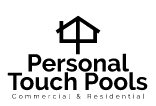Commercial & Residential – Haysville, KS New Pool Builds, Maintenance & Cleaning Service
There are several categories of places where someone might install a pool. Here are some common examples:
- Residential Properties: Homeowners in Haysville can install a pool on their property to enhance their outdoor living space, create a private retreat, or provide a fun and refreshing place for family and friends to gather.
- Resorts and Hotels: Many resorts and hotels feature pools as a central attraction to attract guests and provide a relaxing and luxurious experience. These pools can range from small and simple to large and elaborate with features such as waterfalls, swim-up bars, and infinity edges.
- Fitness Centers and Athletic Clubs: Fitness centers and athletic clubs often include indoor or outdoor pools as part of their facilities to offer low-impact exercise options, swim lessons, and training programs.
- Public Parks and Recreation Centers: Public parks and recreation centers may have pools for community members to enjoy, providing a low-cost or free swimming and aquatic recreation option.
- Educational Institutions: Schools and universities may have pools for athletic training and swim classes, providing a space for students to learn and compete in swimming and diving.
- Water Parks: Water parks are designed to offer a range of water-related attractions and rides, including wave pools, lazy rivers, and water slides, making them a popular destination for families and thrill-seekers alike.
Overall, the pool installation can vary depending on the type of property, its intended purpose, and the desired features and amenities.
Haysville Pool Maintenance & Cleaning Service
Pool maintenance involves various tasks to keep your pool clean and safe. Here are some of the key tasks involved in pool maintenance:
- Water Chemistry Testing: Regularly testing the water chemistry is essential to ensure that your pool water is balanced and safe for swimming. You should test the water at least once a week and adjust the chemicals as needed.
- pH Adjustment: pH levels in pool water should be between 7.2 and 7.8 to ensure proper sanitization and to prevent skin and eye irritation. Adjust the pH levels using a pH increaser or a pH decreaser, as needed.
- Chlorine Levels: Chlorine is used to kill bacteria and other microorganisms in the pool water. Maintain a chlorine level of 1-3 ppm (parts per million) to keep your pool water safe for swimming.
- Alkalinity Adjustment: Alkalinity helps to buffer the pH levels and keep them stable. Maintain alkalinity levels between 80-120 ppm.
- Skimming and Cleaning: Skim the surface of the pool daily to remove leaves, insects, and other debris. Use a pool vacuum to clean the pool walls and floor, and brush the tiles and grout to prevent algae buildup.
- Filter Maintenance: Your pool’s filter is responsible for removing dirt and debris from the water. Clean the filter regularly to ensure proper functioning.
- Backwashing: Backwashing is a process of reversing the flow of water through the filter to clean out debris. Backwash the filter once a week or as needed.
- Shock Treatment: Shocking the pool involves adding extra chlorine to kill off any bacteria or algae that may be present in the water. Shock the pool once a week or as needed.
- Water Level Maintenance: Monitor the water level in your pool and add water as needed to keep it at the proper level.
- Winterizing: If you live in an area with cold winters, you’ll need to winterize your pool by draining the water and adding a winterizing chemical to prevent freezing and damage to the pool equipment.
Regular pool maintenance keeps your pool clean and safe for swimming. Hiring a professional pool service to take care of your pool maintenance needs saves you time, energy, and potentially money in the long run.
